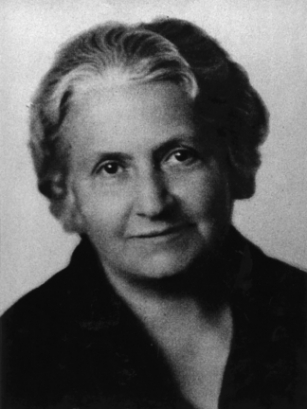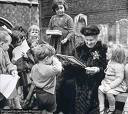Dr Maria Montessori
 Dr Maria Montessori
Dr Maria Montessori
Maria Montessori was a medical doctor who became world renowned for her work in the education of young children. She was born in Italy on the 31st August 1870, the daughter of well-educated, middle class parents. Despite her father’s protests, she first studied engineering, then medicine, and in 1896 was one of the first women to graduate as a doctor from the University of Rome. In her work as a voluntary researcher at the University’s psychiatric clinic, she visited asylums to identify patients for treatment and there observed children suffering from mental illness. It became clear to her that none of them had any hope of improvement in asylum conditions and she became interested in the work done by Itard and Seguin.
In 1897 Montessori’s work with these children began to receive more prominence. The 28-year-old Montessori was asked to address the National Medical Congress in Turin, where she advocated the controversial theory that the lack of adequate provision for children with mental and emotional disorders was a cause of their delinquency. Expanding on this, she addressed the National Pedagogical Congress the following year, presenting a vision of social progress and political economy rooted in educational measures. She asked for the foundation of medical-pedagogical institutes and a special training for teachers working with special needs children. This notion of social reform through education was an idea that was to develop and mature in Montessori’s thinking throughout her life.
She designed and had built a set of teaching materials and developed an environment in which self-motivated learning could take place. Her success with these children led her to take an interest in the education of more typical children, and in 1907 she started her first school, the “Casa dei Bambini” in a underprivileged area of Rome.
Thus began Dr Montessori’s life-long involvement in education rather than medicine. The “Casa dei Bambini” attracted a great deal of attention, and in 1909 Maria Montessori ran her first training course for teachers. From this came her theory of education (set out in The Montessori Method) and the growth of Montessori schools all over Europe and the U.S.A.
Subsequent lecture tours and training courses were held in England, Spain, Australia, Holland and the United States. In 1934, Mussolini forced the closure of the Montessori Schools in Italy, and Dr Montessori settled in Holland, where she established the Association Montessori Internationale.
When World War II broke out, Dr Montessori went to India to establish a training centre, and there her ideas were influenced by the Indian culture. It was in India that she developed the concept of “cosmic education”. Also, as a result of the War she developed a passionate concern for peace through education.
After the War ended, she returned to London and a Montessori Centre was established which today survives as the St Nicholas Training Centre. The rest of her life was spent in writing and teaching, and she travelled widely to further the aims of the A.M.I.
She was nominated three times for the Nobel Peace Prize, and she lived to see herself and her theories acclaimed throughout the world. She died in Holland in 1952, at the age of 82, and is buried near Hague, headquarters of the A.M.I., Association Montessori Internationale.
